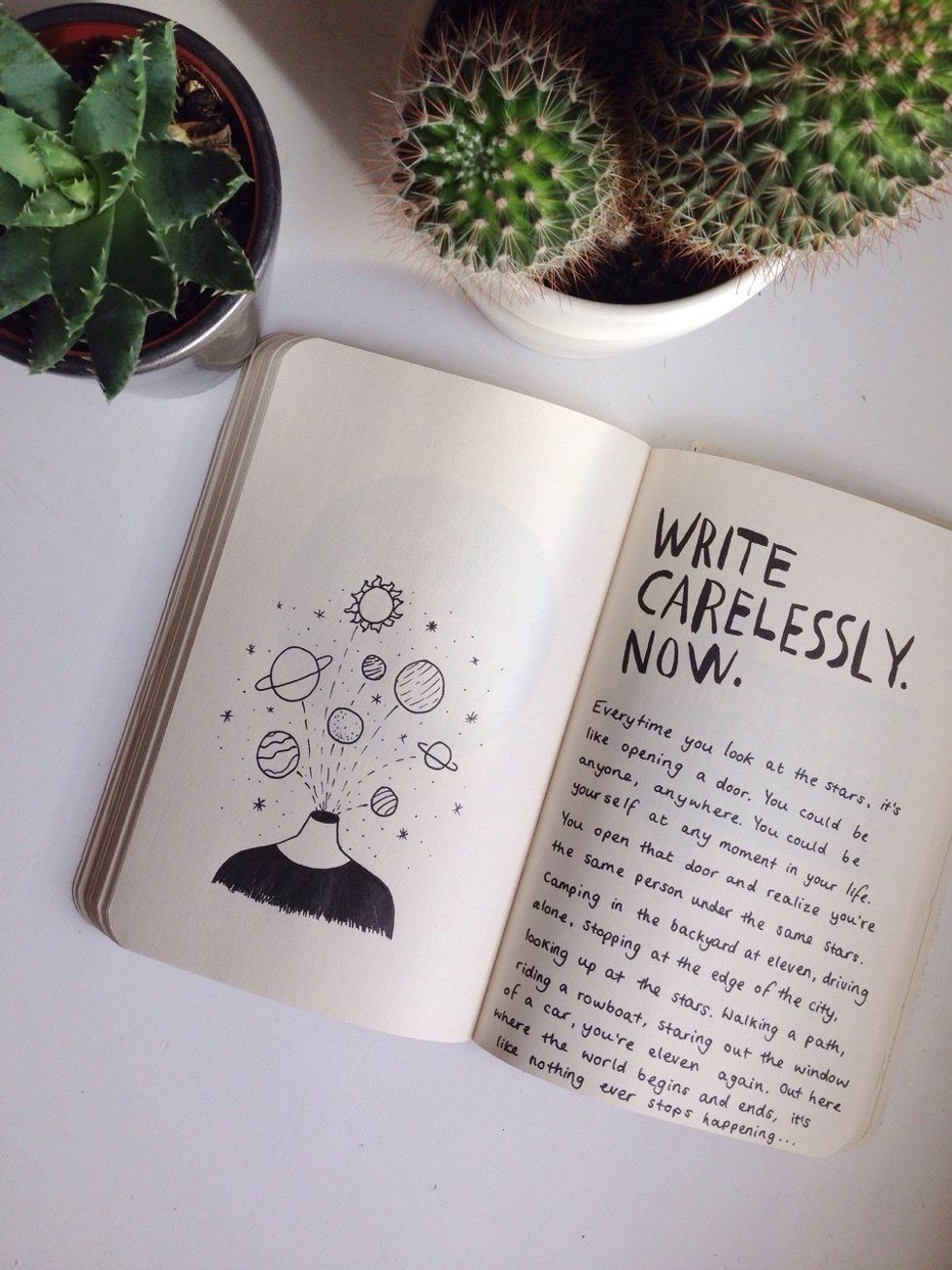If you've ever had any interest in writing, you understand what it's like to well, be a writer. Whether you journal, jot, write stories or poems, your mind is very creative and different from the rest. As a writer, you may tend to see the beauty in erratic situations, make stories out of the most random encounters, or pen out your feelings because it's your one way of getting your message across. We writers tend to be different from the rest because of many reasons. Our minds seem to work differently, and that's a-okay.
To have the mind of a writer is both glorious and torturing all at the same time. If you're a writer of sports, fashion, romance, horror, scripture, and anything in between, you probably understand what I mean. So, if you're anything like me, here's what it's like to live the life of a writer:
1. My mind is always on the move.
I am constantly looking and searching for new ideas or for something new to write about no matter what time of day it is. 24/7, my mind is in its own world: drafting new concepts, creating new meaning, and designing new ideas that could be really great. I'll be in the middle of writing something one minute, but the next I could be on a whole new topic. My mind picks and chooses day by day what's new and what's interesting. It works at a mile per second and sometimes it's actually hard to stay on track. It's like a record that's on repeat and never, ever stops turning.
2. I'm always so intrigued with other people's work.
Whenever I read another person's work, it always seems to inspire me to come up with new ideas. Reading other people's work helps me get out of the chaos of my own, release my stress, and relax me. Whether its a novel, an article, a column, or a blog, any form seems to intrigue me in some way. Reading other people's work inspires me to become a better writer. Not only that but looking at other's work almost always brings out the competitive side in me because I tend to ask myself, "In what ways could I top this? In what ways can I better my writing skills from this?" Within writing, that competitive side of us can come out in full swing, so we have to be careful to not get lost in it. Reading others work is always so intriguing to me because it's something new and something I usually am not used to.
3. My ideas spark at the most random times.
For me, my ideas usually spark after I'm inspired by something. Whether I see a dog on the street or I think back to a certain memory in my life, my ideas usually stem from there. Because my mind is constantly searching for new ideas, the better ones (at least for me) tend to spark late at night, especially right before I fall asleep. So random, but once they start coming in they don't stop.
4. My iPhone notes are full of sparse sentences and random phrases.
Because the ideas spark at the most random times, I always need somewhere to keep them. I know that my notes are full of random here and there's, misfits that'll never be. I have pages after pages of notes that are waiting for the right time to be used: random wannabes that are waiting for their chance in the spotlight. There are endless paragraphs on life, love, and everything in between. My iPhone notes can almost be viewed like a bullet journal in a sense because they just patiently await the day for newcomers or the day to be used.
5. Once I get the urge to write about something, it has to be written right then and there.
Maybe it's not the same for all of you, but usually, when I think of a topic I'm really interested in, I have to write about it right then and there. The longer I wait, the faster the topic drains and new ones overcome. The more I put it off, the less into the topic I am and it's harder for me to write about it. Sometimes, I even forget. So, once I have an urge to write, it has to be done.
6. I over-analyze everything.
Whether it's something someone said to me, a lyric from a song, or a line in one of my favorite novels, it'll always (without a doubt) be over-analyzed. I'll analyze it enough to find a million different reasons as to just why those words were said or written, and then I'll analyze each of those reasons. It's a constant cycle which seems to never end. Someone will say something to me and months later I'll still be thinking about it, wondering just why they said that certain thing and wondering just what they meant by it. Years after a song has been released I'll be listening to it, analyzing the song word by word, still trying to find that exact meaning behind it, even though I already discovered it years ago. My over-analyzing often sparks me with new ideas, which can be looked as a plus of the great power of analytical reasoning, but with that comes chaos.





















